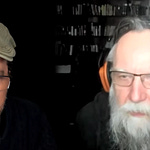Ethnosociology is independent field of sociology, based on the analysis of transformation of societies and social systems — from the simplest one (ethnic group) to the most complex (civil society and post-society or post-modern society) rather than the technical application of sociological principles to the study of nationalities and ethnic groups. The first section describes the major sources and schools related to ethnosociology (sociology, anthropology, ethnology, cultural, social and structural anthropology, etc.), both foreign and Russian. The basic terminological apparatus is outlined. Main research paradigms are descrided. The second section discusses the ethnosociological structure types of historical societies, regarded as the different orders of sophistication of the primary (atomic) structure (ethnicity here is taken as koinema). The axial chain of social transformations is described: ethnos-laos-nation (demos) — civil society (idiotes) — post-society. Each link is associated with particular model of identification (collective or/and individual). The third section is devoted to the application of ethnosociological conceptual tools to the analysis of contemporary Russian society and its historical roots. To present full range of the ethnosociological concepts, some of which the author introduces for the first time, is evoked a wide spectrum of knowledge from the different humanitarian fields: philosophy, history, economics, culture, linguistics, anthropology, the comparative religion studies.
Lecture 1 / Introduction
Part 1. The ethnos as sociological category
— Part 2. The definition of ethnos
— Part 3. The main features of the ethnos
— Part 4. The paradigmatic approaches to the ethnos
— Part 5. The process of the ethnosociological development
— Part 6. The diachronicity and synchronicity in the ethnosociology
Supplementary materials:
Ethnosociology: The Foundations is a systematic presentation of the main principles and analytic strategies of the discipline of ethnosociology, written by Alexander Dugin, one of the major Russian philosophers and political analysts of the present day. Through study of the main sources and schools that influenced the establishment of ethnosociology as an independent and original scientific discipline, Alexander Dugin offers a profound philosophical approach to the categories of the “ethnos,” “narod,” “nation,” and “society” and elaborates a general ethnosociological taxonomy.
Dugin’s work is distinguished by its strict consistency, a broad spectrum of knowledge, and various methodologies of ethnosociological analysis, brought together into a single, easily applicable system. While this book can serve as a manual for specialists in the field of sociology, philosophy, political science, cultural studies, ethnology, international relations, state and law, it will also be of pertinent interest to anyone who follows the latest groundbreaking developments in the humanities, or who seeks to understand the structure of human societies.











